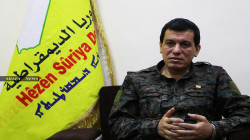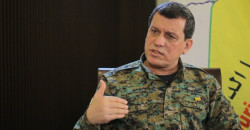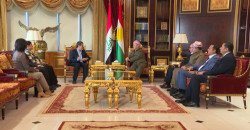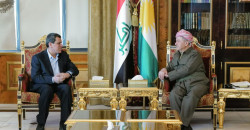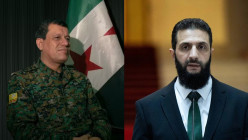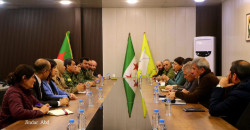Abdi: We’re America’s most loyal ally in Syria. Don’t forget us
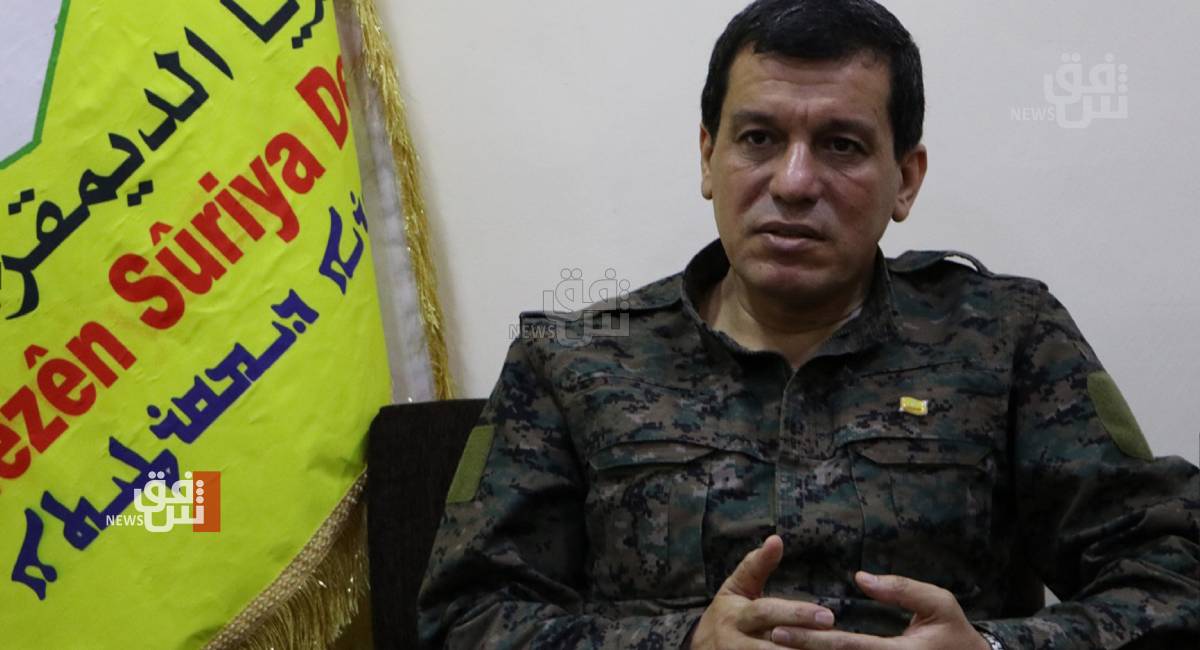
Shafaq News / In 2014, the world learned about my hometown, Kobane, and my people, the Syrian Kurds, when we dealt the Islamic State its first major defeat in partnership with the United States and the Global Coalition. The alliances we forged there led to the end of the ISIS caliphate in 2019.
Today, Kobane is again under threat — and all the gains of those partnerships are also in danger.
This time, the threat comes not from Islamic State terror, but from a U.S. ally and a member of NATO. For more than a week, the government of Turkish President Recep Tayyip Erdogan has rained bombs down on our cities, killing civilians, destroying critical civilian infrastructure and targeting the Syrian Democratic Forces working to keep ISIS down.
For the people of our region, the military defeat of the Islamic State was never our only goal. At every step of our fight against the terror group on the battlefield, we took steps to crush the ideology behind it by building a system based on inclusion, pluralism and equality. In Raqqa, for example, where Abu Bakr al-Baghdadi once ruled over ISIS territory, Syrian women are now prominent leaders.
In 2015, we established the Syrian Democratic Forces, a coalition of Kurds, Arabs and Assyrians committed to defeating the Islamic State. In every city we liberated, our people built local administrations that, for the first time in Syria, represented all ethnicities and religions and gave women equal power.
We’ve been criticized at times for falling short of the West’s democratic standards. Our system is not perfect: We had to build it while at war for our existence and under a crushing economic blockade.
But in terms of the quality of governance and security we have been able to provide, we have outdone every other authority in Syria — and none of it would have been possible without the victory at Kobane and the international support for our resistance that it brought.
Now the Turkish offensive against our region is putting all of that under renewed threat.
One strike in the border city of Derik, home to Kurds, Yazidis and Christians, killed more than 10 civilians. Another targeted the base near the city of Hasakah, where I work with the United States to plan operations against ISIS, striking just hundreds of meters from U.S. forces. I believe it was an attempt on my life: Turkey has assassinated several of my colleagues in the SDF and our administration this year.
Adding to the terror and chaos of the bombing campaign, Erdogan continues to threaten a ground invasion of our territory. We know what the consequences of such an attack will be, because Turkey has done this twice before.
The Turkish invasions of Afrin in 2018 and Ras al-Ayn and Tal Abyad in 2019 displaced hundreds of thousands of people and disrupted the global fight against the Islamic State. After years of Turkish rule, these regions are now infamous for chaos, instability, infighting and the presence of extremists.
Where our administration once protected ethnic coexistence, religious freedom and women’s rights, Turkish forces and Turkey-backed militias commit unspeakable abuses against ethnic and religious minorities and women with impunity.
Under our administration, Afrin was the only part of northwest Syria untouched by radical Islamists. Since the area has come under Turkish control, groups affiliated with al-Qaeda operate freely on its territory. This summer, a U.S. drone strike killed Maher al-Agal, a top ISIS leader, there.
Turkey is not threatening our people and the security and stability for which we have sacrificed so much because of anything we have done. As a pretext for war, Erdogan has accused our forces of involvement in a deadly bombing in Istanbul. Let me make it clear: We deplore and condemn this act of terror, reject all accusations of involvement and again offer our condolences to the victims. We reiterate our call for an investigation and are ready to assist if one takes place.
We ask no one to fight for us. My people are still here because we have resisted alone countless times before. If we must, we will resist again. What we ask is for the world to be with us in a more difficult task: peace.
We believe that the roots of the conflicts that have brought so much pain and suffering to our region are political. There is no inherent hatred between Kurds and Turks: Turkish leaders have made the political choice to see Kurds as a security threat and deny us our fundamental democratic rights. In the past, Erdogan has negotiated with the Kurdistan Workers’ Party (PKK) to end the armed conflict between the group and the Turkish state and resolve the Kurdish question by peaceful means.
When those talks were taking place, we lived in peace with our Turkish neighbors. If they were to restart, we would be able to do so again.
And when our region was under threat in 2019, the PKK offered, in this very newspaper, to sit down and seek a political solution. The call went unanswered, and Turkey invaded and occupied two of our cities just months later.
Had the international community stood firmly against a Turkish invasion and spoken up for peace, things may have gone very differently. Though no one can turn back time, we can learn from the tragedies of the past.
We declare that we are ready to play a helpful role in restarting these talks and reaching the peace that we seek. We call on the international community to immediately take concrete steps to prevent a Turkish invasion and to promote a political solution to the Kurdish conflict based on democracy, coexistence and equal rights. The existence of our people and the security of the region depend on it.
(The Washington Post)
